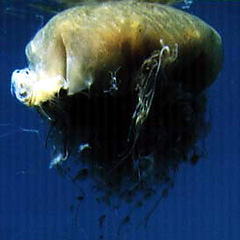Department of Aquatic Bioscience

The Department of Aquatic Bioscience has the following major aims.
First, given the global scale of the havoc wreaked on the environment by mankind, ways must be found to preserve aquatic ecosystems. Second, the development of selfsustaining fisheries must be striven for, and third, using among other things the knowledge from other fields such as biotechnology for varying applications including food production, we must investigate ways to contribute to the welfare of the human race. These are just some of the major research themes we are striving to fulfill.
At our laboratories, which include the Fisheries Laboratory in Hamanako and the Ocean Research Institute, we have been tackling these problems day in and day out and have achieved many encouraging results.
However, the ocean, which has spawned and nursed life as we know it since the Earth’s formation, is vast and as yet only partially understood. There is a real need to once again observe biological phenomena in the oceans from a fresh viewpoint and with open minds.
Laboratories
Department of Aquatic Bioscience
| Aquatic Molecular Biology and Biotechnology | |
|---|---|
| Aquatic Molecular Biology and Biotechnology |
|
| Aquatic Production and Environmental Science | |
| Fisheries Biology |
|
| Fish Diseases | Pathology of infectious diseases of fish and shellfish Biology and ecology of pathogens Host defence mechanisms |
| Aquatic Biology and Environmental Science | Ecology of marine organisms and related environmental change |
| Aquatic Life Science | |
| Aquatic Animal Physiology |
|
| Aquatic Natural Products Chemistry | Search for biologically active substances from marine invertebrates Characterization of biosynthetic pathways of aquatic natural products |
| Marine Biochemistry | Functional diversity of metabolic cross-talks in aquatic organisms |
| Applied Marine Biology *1 | |
|
Integrative study combining qualitative and quantitative genetics, population genomics, developmental biology and ecology of fish and shellfish |
| Marine Bioscience *2 | |
| Marine Planktology | Phylogeny, life history, production ecology of plankton and micronekton Marine food-web, interactions between shallow and deep-sea ecosystems |
| Marine Microbiology |
Ecology, phylogeny, and physiology of marine microbes Microbial contribution to marine food webs and biogeochemical cycles |
| Fish Population Dynamics | Assessment of exploited fish stocks, establishment of reasonable fishery management system, and conservation of marine organisms |
| Biology of Fisheries Resources | Ecology and physiology of marine living resources, underlying mechanisms of their recruitment fluctuations |
| Fisheries Environmental Oceanography | Studies on coastal and open ocean environments for living resources and related physical oceanography |
| Behaviour, Ecology and Observation Systems | Behavioral ecology of marine top predators such as fishes, sea turtles, seabirds and marine mammals Development of biologging systems to investigate behavior, physiology and surrounding environment |
| International Coastal Research Center | The center is concerned with the basic marine sciences including marine ecology, marine pollution, marine biology, physiology, taxonomy and physical oceanography |
| Coastal Marine Environment*3 | |
|
|
*1 Cooperative course. The laboratory and its staffs belong to Fisheries Laboratory
*2 Cooperative course. The laboratory and its staffs belong to Atmosphere and Ocean Research Institute
*3 Cooperative course. The laboratory and staffs belong to Asian Natural Environmental Science Center

